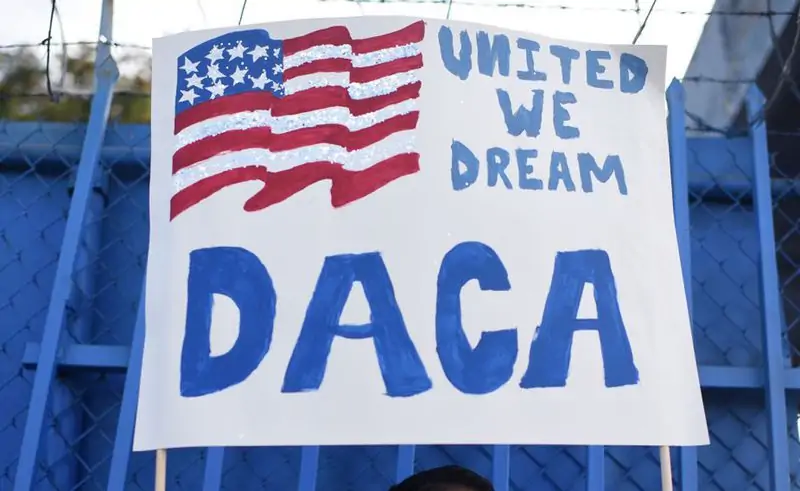The Deferred Action for Childhood Arrivals (DACA) program provides immigration protections for certain young undocumented immigrants, often referred to as Dreamers. Several factors have the potential to significantly impact participants in the DACA program. One is how they handle the ongoing legal issues related to their participation in the program. This includes issues regarding renewing DACA status.
Another is the long-term future of the program. This is something many DACA participants may have concerns about in the current political environment.
Last week, the Trump administration made several announcements regarding the DACA program.
For one, it announced that the program and the protections it provides will, for the time being, remain in place and will not be immediately eliminated as part of other recent immigration program decisions. Among the key points noted in these announcements were that active work permits will not be terminated before their scheduled expiration date and that DACA renewals can continue to be processed.
However, the administration also noted that no decisions have yet been made regarding the long-term status of this program. Therefore, uncertainties remain regarding the program’s future. One wonders what the Trump administration will ultimately decide regarding this program.
Uncertainty regarding an immigration program they are a participant can fill a person with a lot of worry. In the midst of such worries about the future, it is essential for a person not to overlook giving proper attention to legal issues related to the program that arise in the present. Immigration lawyers can advise DACA participants on issues related to DACA renewal and other matters concerning DACA protections.
Historical Context of DACA
The Obama administration first introduced DACA in June 2012 as an executive action designed to provide temporary relief for undocumented immigrants who arrived in the United States as children. It was never meant to be permanent immigration reform, but was instead framed as an exercise of prosecutorial discretion.
Since then, the program has been repeatedly challenged. The Trump administration attempted to rescind it in 2017, leading to prolonged litigation. In 2020, the U.S. Supreme Court blocked the termination, ruling that the government had failed to follow proper administrative procedures. Later, a federal judge in Texas ruled parts of the program unlawful, limiting new applications while allowing renewals to continue.
The Biden administration has sought to preserve and fortify DACA, issuing new rules in 2021 to strengthen its legal standing. However, lawsuits led by states such as Texas continue, leaving the program in a state of legal limbo.
Renewal Requirements and Legal Considerations
DACA recipients must remain diligent in meeting their renewal obligations to maintain work authorization and protection from deportation or removal. The U.S. Citizenship and Immigration Services (USCIS) requires that applications be submitted on time and supported by accurate documentation.
Entity: DACA
- Renewal Period: Every two years.
- Filing Fee: $495 payable to USCIS, covering both Form I-821D (Consideration of Deferred Action for Childhood Arrivals) and Form I-765 (Application for Employment Authorization).
- Eligibility: Arrival before age 16, continuous residence since June 15, 2007, under the age of 31 as of June 15, 2012, currently in school, graduated, obtained a GED, or honorably discharged from the U.S. Armed Forces, and no significant criminal record.
- Biometrics Requirement: USCIS collects fingerprints and photos for background checks.
- Work Authorization: Employment Authorization Document (EAD) valid until the expiration date of the renewal.
Failure to file timely renewals can result in loss of work authorization and exposure to deportation proceedings.
Legal and Political Uncertainty
The future of DACA has always been subject to the whims of politics. While the Trump administration announced temporary continuation of protections, it also signaled the possibility of termination. The Biden administration has tried to reinforce the program through rulemaking, but federal courts, particularly the Fifth Circuit Court of Appeals, continue to scrutinize its legality.
Congress has attempted multiple times to pass the DREAM Act, which would provide a path to permanent residency for Dreamers, but has failed to secure passage. Until a legislative solution is enacted, recipients must live with recurring cycles of uncertainty.
This instability also impacts mental health, as recipients live with the fear of losing protections, jobs, and the ability to remain with their families.
Economic, Educational, and Family Dimensions
DACA recipients are deeply integrated into American society. According to the Migration Policy Institute, approximately 580,000 active DACA recipients live in the U.S. as of 2025, with California, Texas, New York, and Illinois hosting the largest populations. Collectively, Dreamers contribute billions in federal, state, and local taxes each year.
In education, DACA has allowed thousands of young immigrants to pursue higher education, although recipients remain ineligible for federal financial aid. Many states offer in-state tuition to DACA students, but opportunities vary significantly.
Families also feel the effects of DACA’s uncertain future. Many Dreamers are parents of U.S.-born children. A sudden policy change could mean separation from loved ones or the loss of household income. These family-level impacts amplify the urgency for legal clarity.
Mental Health and Human Impact
The mental health consequences of living under DACA uncertainty are profound. Recipients often experience chronic stress, anxiety, and depression related to fears of deportation, financial instability, and lack of long-term security. Research indicates that uncertainty about immigration status hurts educational outcomes, career advancement, and overall well-being.
Support systems—such as counseling services, community organizations, and legal advocacy groups like the Migration Policy Institute and the National Immigration Law Center play a vital role in addressing these mental health challenges.
Advance Parole and Travel Restrictions
DACA does not grant freedom to travel outside the United States. However, recipients may apply for Advance Parole, which allows temporary travel for educational, employment, or humanitarian purposes. Without an Advance Parole, leaving the U.S. can result in denial of reentry.
Advance Parole has its own application process and is subject to approval by USCIS. Its availability has been inconsistent due to policy shifts, further complicating the ability of Dreamers to study abroad, visit family, or pursue professional opportunities overseas.
Practical Guidance for DACA Recipients
Given the uncertainty and complexity of immigration law, it is essential for DACA recipients to:
- File renewal applications at least 120–150 days before expiration.
- Keep documentation of continuous residence and educational or military service.
- Consult immigration attorneys for updates on lawsuits, federal rulings, and policy changes.
- Explore mental health resources to mitigate stress caused by uncertainty.
- Stay informed through USCIS announcements and trusted advocacy organizations.
FAQs on DACA
Can I still renew my DACA status in 2025?
Yes. Renewals are being processed by USCIS, though first-time applications remain blocked by federal court orders.
What documents are required for a DACA renewal?
Typically, the required documents include Forms I-821D, I-765, and I-765WS, two passport-style photos, proof of identity, and any updated records that confirm ongoing eligibility.
How long does it take to renew DACA?
Processing times vary but generally range from three to five months. Delays are possible, so early filing is strongly recommended.
Can I travel outside the United States on DACA?
Not without Advance Parole. If approved, travel must be for educational, humanitarian, or work-related purposes.
Will DACA lead to a green card or U.S. citizenship?
No. DACA is a temporary program and does not provide a direct path to permanent residency or citizenship. Only Congressional action can change this.
What happens if DACA ends while my renewal is pending?
If courts or the administration end the program, pending renewals may be paused or rejected. Legal guidance becomes essential in this scenario.
How does DACA affect mental health?
Living in uncertainty contributes to stress, depression, and insecurity, impacting education, work, and family life. Counseling and community support can help manage these effects.
At Hussain & Gutierrez, we recognize that DACA recipients are more than immigration case numbers—they are students, workers, parents, and essential members of their communities. Our attorneys provide tailored guidance for renewals, Advance Parole applications, and legal strategies to navigate policy shifts.
By combining legal expertise with compassion, we help Dreamers safeguard their rights and plan for their futures, even in times of uncertainty. If you or a loved one is a DACA recipient facing questions about renewals, eligibility, or long-term immigration options, visit Hussain & Gutierrez today to schedule a consultation.



